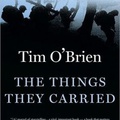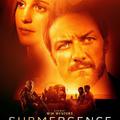Bret Easton Ellis: Imperial Bedrooms
 This novel was heavily advertised here before it came out in Hungarian at the end of 2010, and it was just as extensively reviewed immediately after it was published, so I didn’t wait long before getting down to reading it (at the beginning of 2011), especially since I’m in a circa 12-year-old love-hate relationship with Bret Easton Ellis, and I’m interested in everything he does. As this is a sequel to Less Than Zero, set 25 years later, I re-read Less Than Zero before reading Imperial Bedrooms, even though I usually like to rest at least a couple of months between two Ellis novels.
This novel was heavily advertised here before it came out in Hungarian at the end of 2010, and it was just as extensively reviewed immediately after it was published, so I didn’t wait long before getting down to reading it (at the beginning of 2011), especially since I’m in a circa 12-year-old love-hate relationship with Bret Easton Ellis, and I’m interested in everything he does. As this is a sequel to Less Than Zero, set 25 years later, I re-read Less Than Zero before reading Imperial Bedrooms, even though I usually like to rest at least a couple of months between two Ellis novels.
As I said, 25 years has passed, but the world and the characters Ellis writes about haven’t changed much. Sometimes there are passing references to screwed-up plastic surgeries or messed-up marriages which indicate that the characters are not 18 anymore, but if it hadn’t been made obvious at the beginning of the novel in a rather forced-postmodernist way that the characters are now in their 40s, then I wouldn’t have been able to guess their age based on their behavior. The protagonists of Less Than Zero failed to grow up in the intervening 25 years, they didn’t manage to create meaningful lives, and they continue living obsessed with sex, partying and booze – so based on their habits and their maturity (or lack thereof) I would probably have guessed they are pampered rich 25-year-olds.
I assume Ellis must have known that you cannot expect too much from characters such as the ones he wrote about in Less Than Zero, therefore I find the alleged idea behind this novel – to wit: Ellis wanted to show what became of his characters in 25 years’ time – a bit ludicrous and pointless. Of course it soon transpires that nothing became of his earlier characters – and Ellis must have known this, too. And since his heroes, their morals and Los Angeles all remained the same, Ellis could have published the same novel again, had he been really planning to show what became of his characters – with the only notable exception that he should have replaced his references to Walkman music players with references to iPhones. I guess his avid readers (and please note: I’m one of them) would have been curious to read even such a less-than-original remake, but Ellis hadn’t stopped here, oh no – he had actually come up with a story, and I consider this quite a mistake.
Less Than Zero consists of loose-knit episodes, aimless conversations and empty daydreams – in fact, it has virtually no plot or story at all. But with this lack of real story and with its episodic quality, that book manages to portray the era of the 1980s and the and the era’s „typical” characters in a frightfully clear fashion. Imperial Bedrooms, on the other hand, does have a story, the characters have goals and make plans, and it seems that the events will actually lead up to something. Of course, all this is not really true: the story is deliberately tricky (up to the point that I find it almost impossible to follow), but it’s absolutely uninteresting, often ridiculous and sometimes it even resembles the cheapest day-time soaps. The sentences are often jumbled, banal and baffling – which annoys me big-time. And since Ellis’ characters are anything but self-sufficient adults, and they can be more or less freely interchanged (and confused) with one another, I have no interest whatsoever in who is actually playing his games with the others. I have no reason to like Julian better than Rip because they are basically the same, and therefore I’m not interested in their – supposedly – separate and unique stories.
In Less Than Zero, I don’t mind that the characters have no personality: that novel is about an era and a generation, and not about individuals. But Imperial Bedrooms seems to be a crime story of sorts and I got a feeling that you need individual characters to be able to enjoy a crime novel: it doesn’t matter, it cannot matter to me who dies, who does the detective work, and who chases whom if everybody is the same.
On the whole, Imperial Bedrooms was a huge disappointment for me. The references to Less Than Zero in the first couple of pages are entertaining and exciting, and the last couple of pages show something of the barren world of Less Than Zero, and depict the changes Clay underwent in 25 years quite well. But all the pages in between – they’re just plain boring and labored to me.





